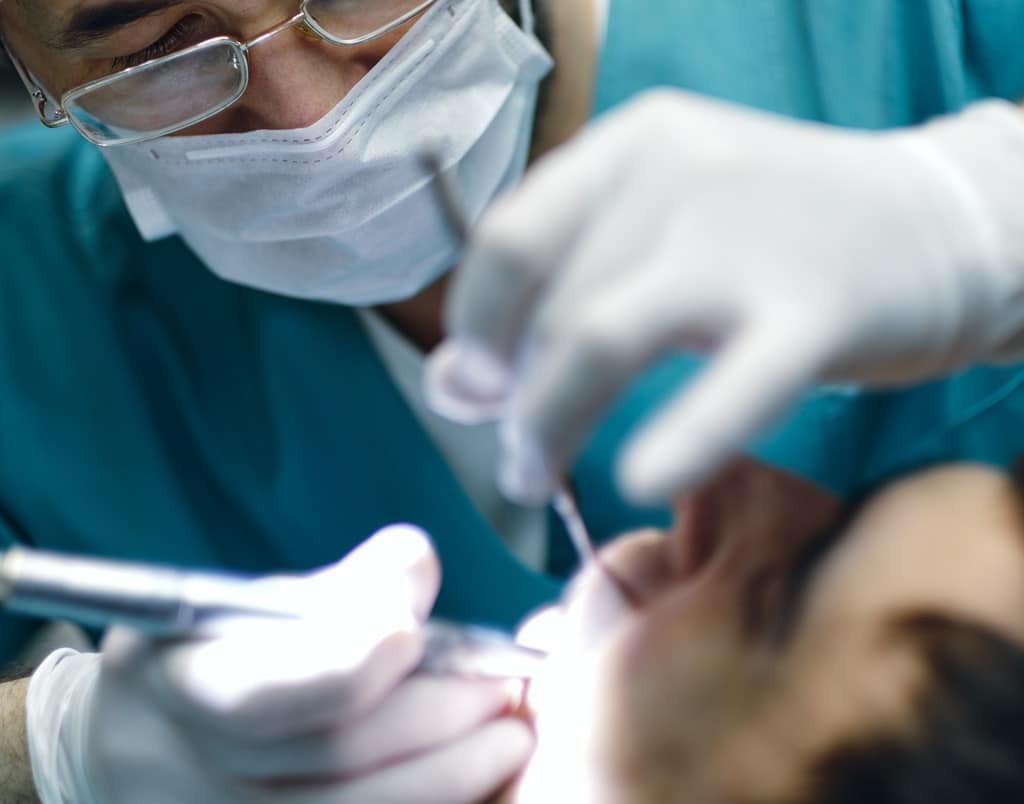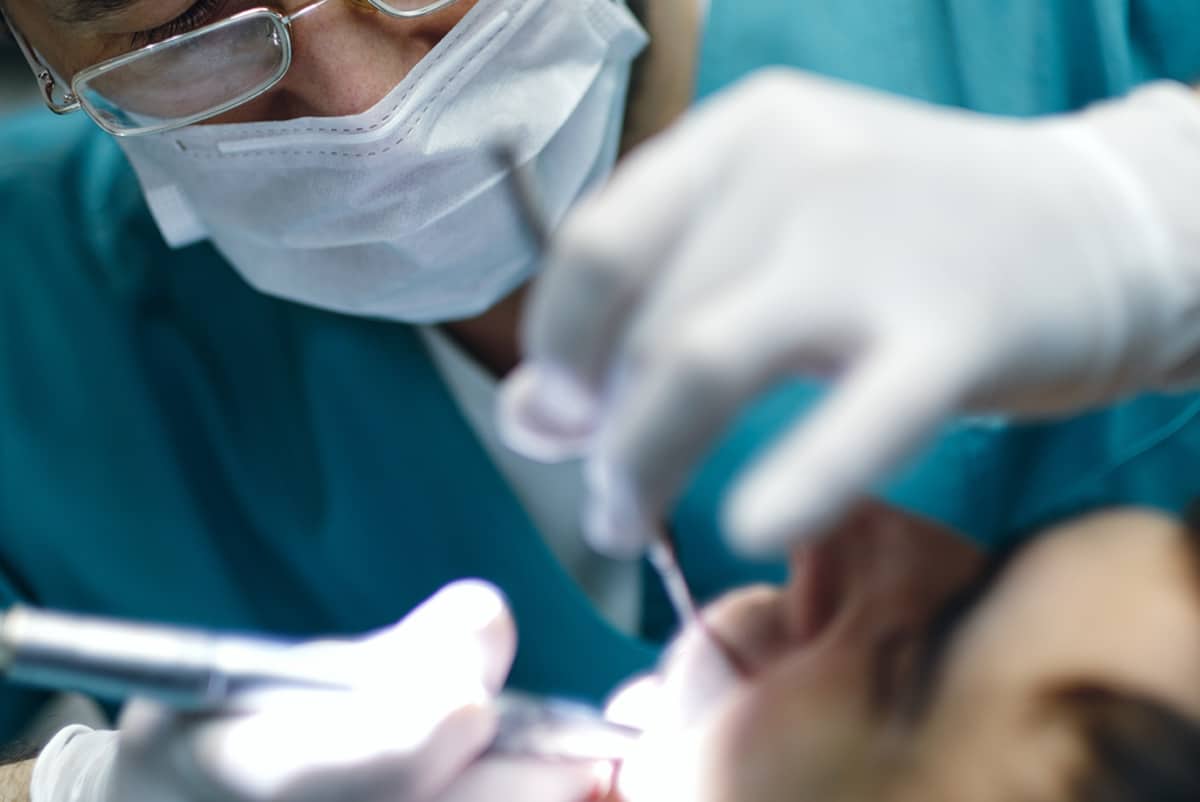Having a Wisdom Tooth extracted at Fulham Road Dental

 What to Expect Before, During, and After the Procedure
What to Expect Before, During, and After the Procedure
Wisdom teeth, also known as third molars, are the last set of permanent adult teeth located at the very back of the jaw. While some people have no problems with their wisdom teeth, others may experience dental problems such as impacted wisdom teeth, tooth decay, and periodontal disease.
If your wisdom teeth are causing frequent pain or other dental problems, your dentist or oral surgeon may recommend wisdom tooth extraction or wisdom tooth removal.
Let’s look at what wisdom tooth extraction is, when it may be necessary, and what to expect before, during, and after the procedure.
What is Wisdom Tooth Extraction?
Wisdom tooth extraction/wisdom tooth removal is a dental surgery procedure performed by dentists or oral and maxillofacial surgeons to remove one or more of the wisdom teeth. The procedure may involve removing one or more of the four permanent adult teeth located at the back of the upper or lower jaw.
When is Wisdom Teeth Extraction Necessary?
There are several reasons why you might need to have your wisdom teeth removed, including:
Impacted wisdom tooth: If your wisdom teeth are impacted, meaning they have not fully erupted from the gum line, they can cause severe pain, swelling, and infection.
Crowding or misalignment: If your wisdom teeth grow in at odd angles, they can put pressure on adjacent teeth, causing them to shift out of place.
Decay or gum disease: If your wisdom teeth are difficult to clean, they may be more prone to decay and gum disease and need to be removed.
Recurrent infections: If you experience recurrent infections or inflammation around your wisdom teeth, your dentist or oral surgeon may recommend that removing your wisdom teeth may help to prevent further complications.
What to Expect Before Having A Wisdom Tooth Removed
Before wisdom teeth extraction, your dentist or oral surgeon will conduct a thorough examination of your teeth and surrounding area. They may also take x-rays to determine the position and condition of your wisdom teeth.
If the extraction is necessary, they will discuss the procedure with you and provide instructions on what to do before the wisdom tooth surgery.
You may be advised to avoid smoking, drinking alcohol, or taking prescription pain medication.
You may also need to make arrangements for someone to drive you home after the procedure, as you will not be able to drive or operate heavy machinery for a few hours after the surgery.
What to Expect During A Wisdom Tooth Removal Procedure
Having wisdom teeth removed is typically an outpatient procedure, meaning that you can go home the same day. The procedure is usually performed under local anaesthetic, which numbs the tooth, surrounding teeth and area. In some cases, you may be given a sedative to help you relax during the procedure.
During the oral surgery procedure, the dentist or specialist surgeon will make a small incision in the gum tissue to expose the tooth and surrounding bone. They will then remove the tooth.
Once the tooth is removed, the dentist or surgeon will clean the empty tooth socket and place a gauze pad over the extraction site to control bleeding. They may also place dissolving stitches to help the wound heal.
What to Expect After Wisdom Teeth Removal
After wisdom teeth extraction, you may experience some pain, swelling, and bleeding around the extraction site. You may also have a sore jaw, and you may need to eat only soft foods for a few days after the surgery.
To reduce swelling and discomfort, you can apply an ice pack to your cheek for 20 minutes at a time every hour..
To prevent complications such as, delayed healing, or dry socket, it is important to follow the aftercare advice provided by your dentist or surgeon. You may need to avoid smoking, drinking hot liquids, or drinking alcohol for a few days after the surgery; this is true of all oral and maxillofacial surgery.
You should also avoid spitting, rinsing your mouth, or using a straw for at least 24 hours after the surgery to prevent the blood clot from dislodging from the tooth socket. During the healing process, the blood clot that forms in the tooth socket helps to protect the underlying bone and nerves and allows the gum tissue to heal.
If the blood clot becomes dislodged or doesn’t form properly, you may experience a condition called dry socket, which can cause complications. To prevent dry socket, be sure to follow your dentist or surgeon’s advice on how to care for the extraction site and avoid touching the area with your tongue or fingers.
Most people can return to normal activities a few days after having wisdom teeth removed, although it may take several weeks for the extraction site to heal completely. During this time, you may need to follow a soft food diet and avoid hard, crunchy, or sticky foods that can irritate the extraction site.
Dental Costs for Wisdom Teeth Extraction
The cost of wisdom teeth extraction can vary depending on the number of teeth to be removed, the complexity of the procedure.
Most dental insurance plans cover at least a portion of the cost of wisdom teeth extraction, and some dental practices offer payment plans or financing options to help manage the cost.
Wisdom Tooth Extraction at Fulham Road Dental
If you are looking for a trusted and experienced dental practice in London for your wisdom tooth extraction, you are in the very best hands with Fulham Road Dental and our expert in tooth replacement and oral surgery, Dr Yusuf Gadiwalla.
Our team of dental professionals includes skilled oral surgeons that specialise in wisdom teeth removal, along with a range of other complex dental surgeries and treatments.
At Fulham Road Dental, we use state-of-the-art technology and techniques to provide safe, effective, and minimally invasive wisdom tooth extraction. Our dentists and oral surgeons work closely with you to ensure that you feel comfortable and informed throughout the procedure.
During your initial consultation, our team will conduct a thorough examination of your teeth and surrounding area and discuss your treatment options with you. We will also provide detailed instructions on how to prepare for the procedure and what to expect during and after the surgery.
If you are experiencing pain or other dental problems related to your wisdom teeth, don’t wait to seek treatment; contact our team at Fulham Road Dental to schedule a consultation and take the first step towards a healthier, happier smile.